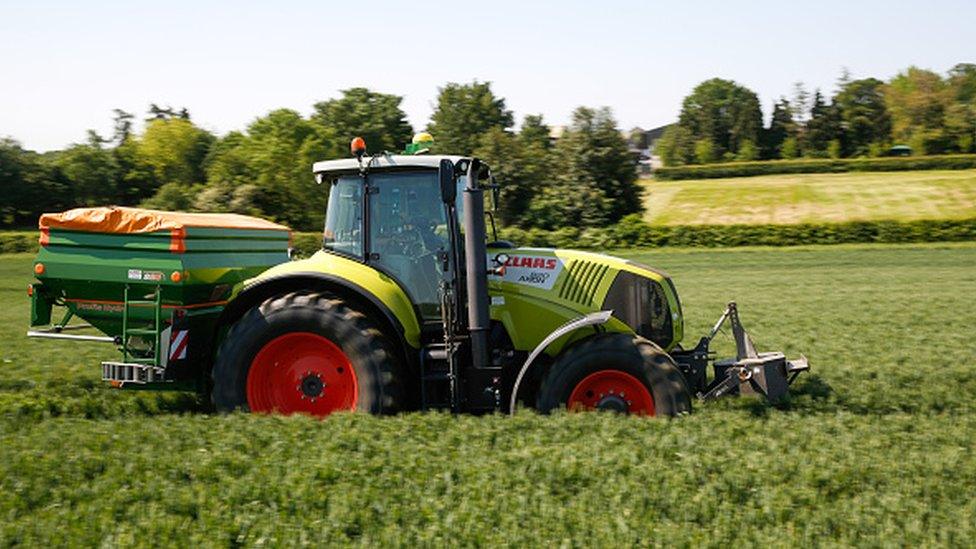Brexit: Talks over Wales' farming and agriculture future
- Published

Leaving the EU presents an opportunity for "very Welsh-specific policies" on farming and the environment, the rural affairs secretary has said.
Lesley Griffiths and First Minister Carwyn Jones met leading environment and agriculture figures in Cardiff Bay.
Ms Griffiths said her portfolio was "absolutely awash with EU funding, regulations, policies and legislation".
The Welsh Government Monday's meeting was a chance to discuss any concerns people had.
Ms Griffiths said: "My officials will be looking very carefully at what we need to unpick, what we can still use and where we can strengthen the legislation. We can have very Welsh-specific policies going forward."
Welsh Government officials have already begun to talk of a Welsh Agricultural Policy.
Ms Griffiths said the referendum result was a "situation we didn't want to see" and single market access was vital to Wales, with 90% of Welsh food and drink currently exported to the EU.
In terms of farming subsidies and EU funding for rural communities, she said the first minister had made clear to Prime Minister David Cameron he expected "to receive every penny that we would have got from the EU, from the UK government".
Carwyn Jones will discuss the future of Wales' farming and agriculture sectors in the wake of the Leave vote
Mr Jones said securing the future of grant funding for farmers was "one of the most immediate concerns".
Vote Leave campaigners argued the Welsh and UK governments would design a new payments system for agriculture to replace EU subsidies.
In 2014, £240m was given to Welsh farmers in direct payments alone. Half made a loss, or would have done so that year, without them.
Between 2014 and 2020, £957m is meant to be made available via the Rural Development Programme - a system of grants and loans to support rural communities.
Country Land and Business Association Cymru director Rebecca Williams said the first priority should be "to establish a world-leading agricultural policy" and to ensure the sector played the "appropriate leading role in the critical trade negotiations that lie ahead".
Stephen James, president of NFU Cymru, said it was important politicians and those in the rural affairs sector worked together as the two years available to the UK to plan its exit from the EU would "pass very quickly".
- Published1 July 2016
- Published30 June 2016
- Published24 June 2016